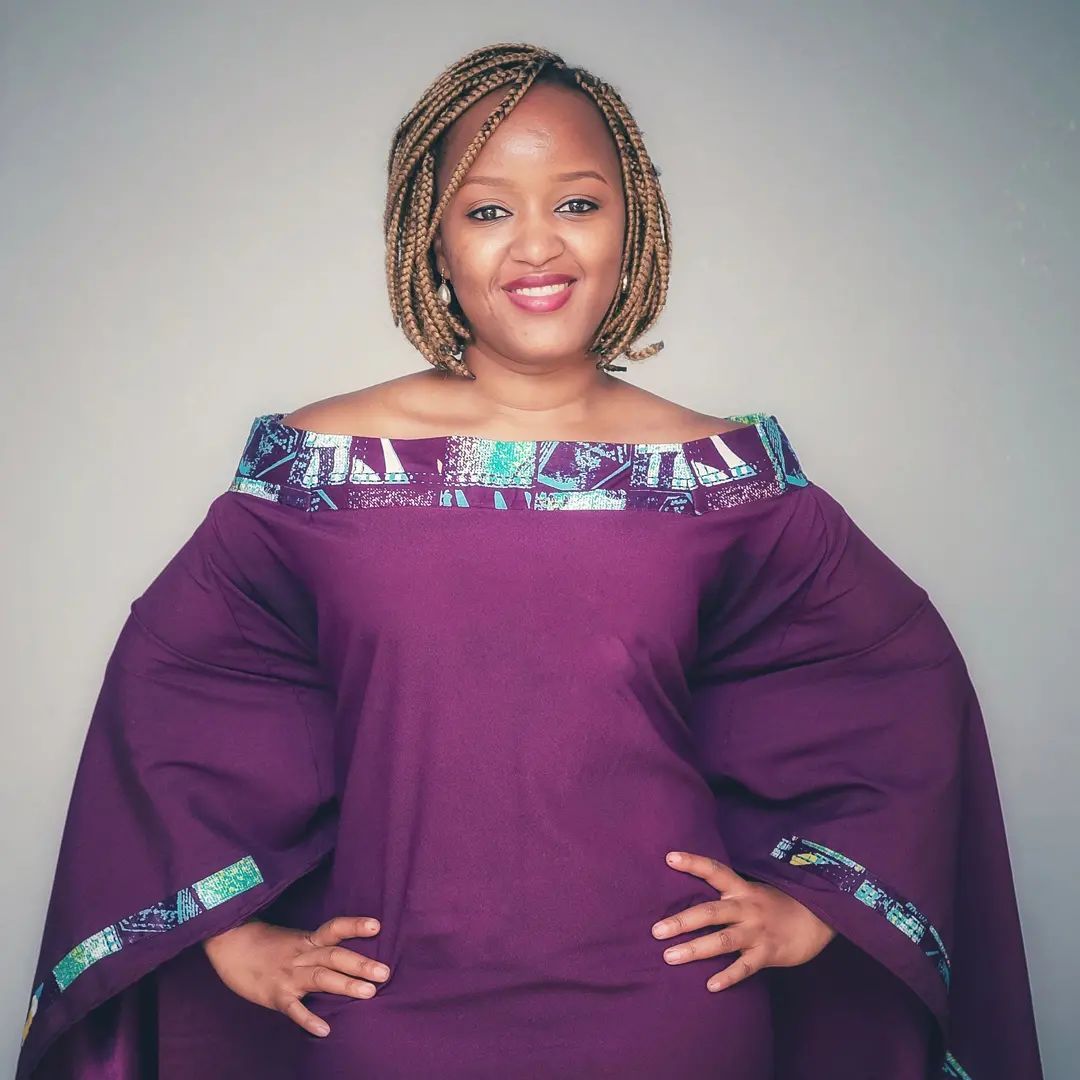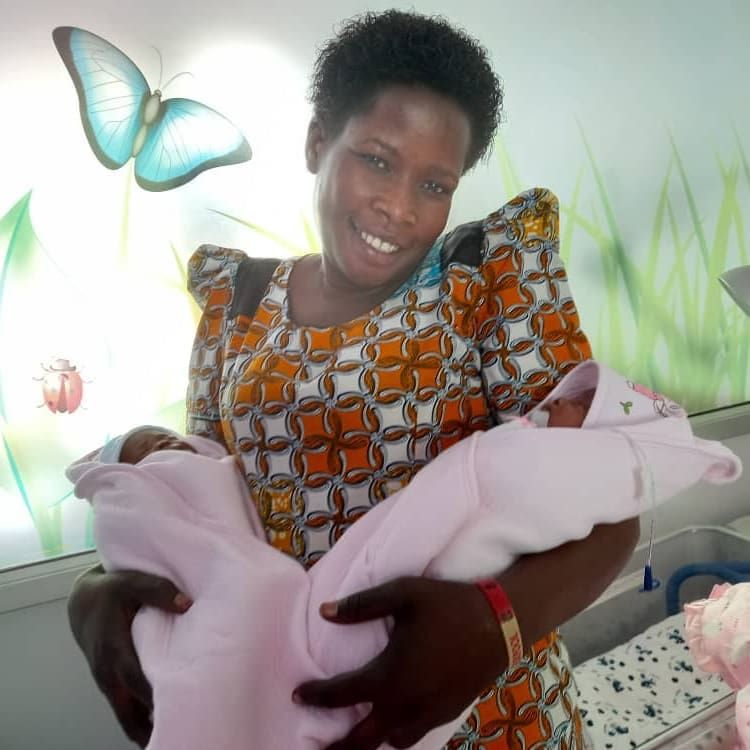Childbirth is one of the most beautiful things that can ever happen to a woman. The idea of bringing life into this world gives most first-time mothers a sense of pride at being entrusted with this amazing role.
Despite its beauty, childbirth is also a huge risk, and in case of complications, the mother, child or both may lose their lives.
The current maternal mortality ratio in Uganda is 336 maternal deaths per 100,000 live births. Infant mortality is 43 deaths per 1000 live births, with 42% of the mortality occurring during the neonatal period. This might be related to the weak health system in the country and the lack of access to human milk.
For reasons such as the death of the mother or her failure to produce colostrum (the first milk enriched with nutrients and antibodies that help a newborn baby fight any illnesses at birth), a child may lose the battle simply because of this.
The ATTA breast milk community is doing its best to help save the lives of many newborn babies in need of breast milk around Uganda. Breast milk donation is a way to give a baby in need human milk when a mother's own milk is not available.
Human milk strengthens the baby's immune system and helps the baby fight disease and infection. It also contains growth hormones that help babies grow. Human milk is easier for babies to digest than most formulas.
Contrary to popular belief, breast milk donation is something that has been done informally for years in our societies, and even though many frown upon it, there is no denying the need for a milk donation bank in Uganda.
The year 2021 saw the launch of Uganda's first human milk bank at St. Francis hospital, Nsambya in the capital Kampala, but it is yet to be fully operational. This has led many mothers in need to look for other alternatives to find the much needed breast milk for their new born babies. Thankfully, ATTA Breast Milk Community has been able to come to the rescue over the last year.
August of every year is breastfeeding month in some countries, so we spoke to Tracy Ahumuza the founder of ATTA to tell us their story.
Andariya: What is ATTA and what do you do?
Tracy: ATTA is made up of the combined initials of my daughter, Alyssa Marie Taha, and mine, Tracy Ahumuza. Alyssa was born full-term in April of 2021, requiring an operation at birth. Prior to this, I had not been told that post-operative nutrition could only be breast milk, preferably colostrum, the first milk. In the three days of my daughter’s life, I struggled to produce the breast milk the doctors were asking for and eventually settled for a donor as advised by the nurses. My sister-in-law who had a one-month old baby at the time came to the hospital, got tested, and expressed milk right there in my room. At the time of my daughter’s death, I had only managed to express about 40ml in total. My milk started to come in earnest a few days later and I wanted something good to come out of this tragedy. I wanted to donate the milk. I looked up the only milk bank I knew but found out that it was not operational and that if I wanted to donate, I would have to drive to the hospital on the other side of town. I was distraught and recovering from my c-section so I was encouraged to swallow a pill, Bromocriptine for two weeks at least, to suppress the milk production. Being in a hospital setting so soon after my daughter’s death was not something I was willing to do, but that is how the idea for the breast milk community was born.

Tracy Ahumuza, the founder of Breast Milk Community. Source: Tracy Ahumuza
Andariya: How and when did you start?
Tracy: We started in July of 2021 by connecting a mother in need to a mother who was willing to donate. Human milk donation has been going on in Uganda for the longest time, sometimes under unsafe conditions. Today, you will not know the value of breastmilk until your new born baby is strapped to machines and you are being told to produce milk but your body cannot. This is why ATTA exists. To create a community of mothers who are ready to donate milk to babies who cannot access it.
Andariya: What inspired you to reach out to the community?
Tracy: At the time of its creation, there was no operational milk bank in Uganda. This bank is expensive to set up and will need a community of educated mothers to donate milk to it. However, babies continue to need milk and human milk banks all over the world have to prioritize sick and premature babies. This milk from banks is in many cases for sale and many mothers may not be able to afford it. So informal and safe milk sharing is the way forward.
Grief donation of breastmilk when a baby dies has been known to help mothers process their grief faster. Many Angel mums have reached out to me saying they wish this initiative existed at the time when they lost their infants.
Andariya: How does ATTA operate?
Tracy: If you sign up to be a donor today, you get tested for diseases that can transfer through breastmilk such as Hepatitis, HIV, and Syphilis. If any of these are positive you do not qualify as a donor. You are asked about your social habits such as smoking and drinking and required to consent to remuneration-free donation. So far, we have matched mothers to donors but have also gone ahead to collect and store breastmilk such that it is available for those in need. The donor is educated on how to safely handle milk and the recipient family is also educated on administering the milk if the baby is at home. Most babies are in neonatal intensive care units or have been recently discharged. Right now we are depending on donors to use their sanitary equipment and we provide milk bags. In the future, we hope that ATTA will be able to supply this equipment.
Human milk for these tiny babies is like medicine. One of the commonest causes of death in preterm babies in Uganda is Necrotising enterocolitis (NEC). NEC happens when sections of the bowel tissue die. NEC is the most common gastrointestinal (GI) emergency in neonates and can present late in tiny babies. Early or suspected NEC is difficult to diagnose. It typically happens within the first 2 weeks of life in babies who are fed formula instead of breast milk.
All the funding we have received so far has been through crowdfunding. ATTA is registered as a non-profit entity, The Alyssa Marie Foundation.
Andariya: What is ATTA’s dream?
Tracy: To have and operate a community-based breastmilk bank to enable equitable access to donor breastmilk.
Andariya: What is the best thing about what you do?
Tracy: We just made a year, which means a lot of the fragile newborns who were really tiny, as little as 700gms when we started, are turning 1 year old and are of the right weight now. They survived the odds.
Andariya: Can you share with us any challenges or setbacks that you experienced?
Tracy: Financial support. Transporting breastmilk and storing it in the right conditions is costly and requires a dedicated team. We are yet to be able to afford our own staff. Everyone is a volunteer. We hope to be able to set up our own offices soon.

Anisha leaving the hospital with her two healthy babies at a steady weight of 3kgs. Source: ATTA Breast Milk Community.
Andariya: What's the public's view on breast milk donation and if there's any stigma what do you think is the best way to overcome it?
Tracy: All those who have been in need of donated breastmilk understand how important it is. Uganda has one of the highest preterm birth rates in the world. These fragile newborns need breast milk the most if we are to reduce the mortality rate. Raising awareness and advocacy for breastfeeding and breastmilk donation will reduce the stigma around it.
Andariya: How can we encourage the public to be actively involved?
Tracy: Encourage mothers to breastfeed and support them to do so. This includes employers, partners, and husbands. This is why breastfeeding week and month exist. It is a collective responsibility. Education on breastfeeding should start during the antenatal period.
Conclusion
People who have extra milk that they’ve expressed and stored may donate to a milk bank. This could be the case for people who exclusively pump or parents with oversupply, as they will often make more milk than needed to feed their babies. Those who have lost their babies can also make bereavement donations of breast milk.
Breast milk donations are primarily used in hospitals to feed sick and premature infants. Human milk is thought to be a therapeutic product to help sick infants grow and prevent health-related complications, particularly in the infant’s gastrointestinal tract. ATTA is connecting the community with the hospitals to ensure breastmilk is available for the most vulnerable infants from mothers who are able to donate it.
You can reach out to the Alyssa Marie Foundation via their numbers (+256783682583 and +256740200043) and social media pages (@ATTAbreastmilk on twitter and @attabreastmilkcommunity on Instagram) to support, inquire or donate. For more information, visit their website: www.attabreastmilkcommunity.org.
